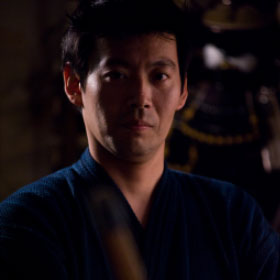You Got It!
How Do I Apply Kendo Teachings
to My Daily Life?
I personally believe if we cannot apply kendo teachings in our daily life, the value of kendo is decreased to nearly zero.
It is very hard to discipline ourselves, but that is the main goal for those who practice kendo (kendoists). Don't you agree?
Teachings of kendo are, of course, to improve our kendo and ourself.
But how can we interpret something like "Zanshin" to use it in our daily life?
What is zanshin?
Zanshin is directly translated as "To leave your mind behind." Whaaat?
Imagine you had just cut your opponent with a real sword. He/she is lying down right in front of you bleeding. Would you walk away?
Nooo!
Make sure that he/she died good! And also would we be sooo sure that our opponent did not have his/her gangs in the woods behind us?
We must make sure that we have defeated our opponent. Therefore, we must take a stance after we have defeated our opponent so that we really know that we are safe.
The action we take and awareness we keep after we have executed our cut is called "zanshin".
Now how do we apply this to our daily life?
I know some people do not like my expression that I am just about to tell you. Please pardon me.
Do you wipe your butt after bowel movement?
I hope your answer is yes. ;)
This is one of the most popular examples among university students. However,I know this is too crude for some of you. So...
Basically, we complete what we have started. When we cook, doing dishes and putting them away should be our zanshin. We turn on the light. That is an action we took. We must finish it. Turn off the light. That is zanshin. Our action is completed.
Do you lock the door when you leave your house? If the answer is yes, you have zanshin.
I can do zanshin in kendo but I am still working on zanshin in daily life. I want you to do the same thing too if you really want to pursue the way of the sword.
If you learn some teachings, please think how you can apply the teachings in your daily life. I will share my ways of applying kendo teachings bit by bit. If you can share yours with others, that would be CHOICE!!
- Kendo and samurai code. How are the related to each other? How do we see the code of samurai in kendo?
